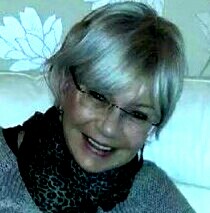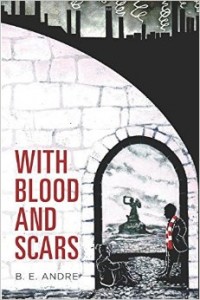How to make the truth Palatable
 Toni Morrison said, “If there’s a book you want to read, but it hasn’t been written yet, then you must write it.”
Toni Morrison said, “If there’s a book you want to read, but it hasn’t been written yet, then you must write it.”
Those words gave me the kick-start. I’d read some second generation Polish fiction (mainly from the U.S.) and a vital ingredient was missing – Europe 1939-1945. Could I manage to depict those years in a way that wasn’t off-putting? Was it possible to describe that story from the perspective of the 1960s? How would I convey a refugee story without it becoming a relentless misery-fest? I wanted the reader to feel moved but not drained by the narrative; this is, after all, a grim and media-skewed history.
But the idea was still compelling. Events in my life overtook me and the project then went on the back burner for a while. The nagging, however, continued; I had to dig for deeper truths and finish this novel.
The first problem was trying to figure out how to tell the story in a manner that would be attractive to readers. According to J. Gardner in his book The Art of Fiction, “Novelty comes chiefly from ingenious genre-crossing or elevation of familiar materials.” I thought of novels with a political backdrop that had moved me without leaving a sense of unbearable desolation. At the heart there was always a child or children who brought humour to the narrative: To Kill A Mockingbird, The Kite Runner, The Book Thief, The Poisonwood Bible. So I took T.S. Elliot’s advice to steal from other authors. Now I knew where I was going.
 In the end it took two years. A couple of reviews the book received seemed to confirm the story was worth telling, and an unreliable child narrator worked well. These are excerpts:
In the end it took two years. A couple of reviews the book received seemed to confirm the story was worth telling, and an unreliable child narrator worked well. These are excerpts:
“This is a sensitively written and important social documentary about the struggles and loyalties of peoples displaced by war and politics.”
“The voice of the child narrator is convincing: she is not exactly a much younger, female version of Holden Caulfield – since there is not quite the same overwhelming sense of alienation – but she is given a similar kind of critical and amused detachment from the events she describes, even though she is deeply involved.”
My original intention in writing this book was to represent the lives experienced by my immigrant community. I wanted to express their stories through showing small daily truths that told a much bigger picture: the narrative of the forsaken, dispossessed and misunderstood.
Bertolt Brecht believed this:
“Nowadays, anyone who wishes to combat lies and ignorance and to write the truth must overcome at least five difficulties. He must have the courage to write the truth when truth is everywhere opposed; the keenness to recognize it, although it is everywhere concealed; the skill to manipulate it as a weapon; the judgment to select those in whose hands it will be effective; and the cunning to spread the truth among such persons. These are formidable problems for writers living under Fascism, but they exist also for those writers who have fled or been exiled; they exist even for writers working in countries where civil liberty prevails.”
Recent news events have, it seems to me, further validated my objectives.
- There is a movement in the UK to counter bigoted assumptions about the effects of immigration. The I Am An Immigrant campaign features posters of immigrants who make a significant contribution to society.
- A few days ago the Director of the FBI, James Comey, made some damning remarks in a speech at the U.S. Holocaust Memorial Museum. In it he implied that Germany and Poland were on the same side. This is the ultimate insult to the only nation invaded on both fronts – from the west by Nazi Germany, from the east by Soviet Russia – a nation that withstood and battled against the German occupiers until the very end. How could Mr. Comey not know that?
- A UK journalist proposed sending gunships after the refugees in the Mediterranean. She said the refugees are “feral humans” and likened them to cockroaches. This was pretty much the view taken by the Third Reich; six million Polish citizens of all denominations were killed to cleanse that part of Europe. Nobody was willing to act then either. As early as 1942 Jan Karski reported to the Allies what the Germans were doing to Jews in Poland. And when Karski went to the United States, Roosevelt was more interested in the condition of the horses in Poland than the Jews. Before WW2 even began, persecution of Jews in Germany was already rife; few countries were prepared to take them in.
There are enormous museums worldwide dedicated to the victims of WW2. We wail and beat our chests that such a tragedy could have happened. Meanwhile, we repeat the same mistakes all over the planet.
What good will a floating memorial to drowned Africans be in 50 years’ time? Will it have photos of these people’s faces on the walls, or exhibit an African child’s shoe that washed up on an Italian beach? A pile of children’s shoes, perhaps?
Maybe one day the daughter of a survivor of the crossings will want to read a book that hasn’t been written yet?
I’ve been that daughter for most of my life. I completed With Blood and Scars and I now know that the story I wanted to read is out there.
—
B.E. Andre was born in Manchester, England, the child of Polish post-war refugee parents. She was educated at Stretford Grammar and Loreto College, read French, German and Swedish at U. C. W. Aberystwyth, and then completed further post-graduate studies in Manchester. This was eventually followed by an M. A. in Critical and Creative Writing at the University of Winchester, United Kingdom. She worked for Reuters News Agency in London where she specialized in the oil market.
She is the proud mother of three grown-up sons who left home when they were supposed to. She lives in Northwich, Cheshire. Among her many interests is the study of wood cabins and garden sheds, and she is on permanent look-out for the ideal writer’s retreat in the Mazury region of Poland.
With Blood and Scars is her debut novel. Buy it HERE
Follow her on twitter and Facebook
Category: Contemporary Women Writers, On Writing

























Thank you. I have struggled with this aspect of writing my truth. I write about post-apartheid South Africa and seem to offend. Love the quote from Brecht.
This looks amazing and I have just bought it. I am such a supporter of tough subjects being brought to the fore and I think what you have done is needed. I am always saying ‘we need more stories like this, not less.’ Fiction is one of the best places to create voices for those without power and to direct the way their stories are told. You should be very proud of what you’ve achieved with this.
Your book having a central child character really resonates with me – my own novel has a child – suffering horrendous violence and abuse at the hands of her father – at its core. I was told by some agencies ‘it’s too brutal to be saleable’. I understood what they meant but I was quite depressed by the fact that crime genre can have wall to wall murder and body parts and somehow that’s ‘ok’, but stories that explore and express what suffering actually feels like are still shied away from.
I’m glad to say the Luke Bitmead Bursary Award took a chance on me. My story will now stand alongside yours and I feel really honoured about that.
Thank you for your comments. Congratulations on the Luke Bitmead Bursary Award! I think you are right that certain stories are still shied away from, and yet, I suppose, you have to leave the reader with some element of hope. Most of us read for entertainment or enlightenment. We don’t pick up a book with the express purpose of being emotionally drained by the end of it, do we? But those stories must also be told in order for people to understand what can go on behind closed doors. Looking forward to finding out how you tackled the difficult themes.
Excellent article. Your novel and your experience sound very compelling.
Thank you. Please come and check out on Facebook (link above in article) what happened to the refugees who provided the inspiration for the novel. The videos showing how they organised themselves into communities are a revelation.
For many reasons, i.e., historical and personal, I am going to read this. Add fit the FBI’s JC – embarrassing! Thank you for the insights.
I was just discussing the plight of the refugees crossing the Mediterranean with my husband after watching the news; I said it reminded me of the Nazi campaign against the Jews and people do not flee in large numbers for no good reason. We would do well to take heed,listen and assist before it’s too late because as you rightly point out; what use is a memorial?
Thank you for sharing.
I can’t comprehened what it happening in the Mediterranean at all. Where did the humanity of the leaders of the EU disappear?
Thank you so much for sharing this insight. We often struggle when trying to find an effective way to express painful truths.
Diane